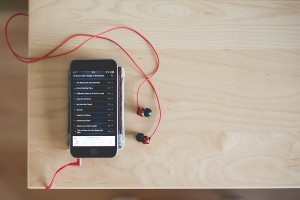#Leadership : How Being Busy Makes You Unproductive…”Beware the Barrenness of a Busy Life.” –Socrates
Being busy has somehow become a badge of honor. The prevailing notion is that if you aren’t super busy, you aren’t important or hard working. The truth is, busyness makes you less productive.
When we think of a super busy person, we think of a ringing phone, a flood of emails, and a schedule that’s bursting at the seams with major projects and side-projects hitting simultaneously. Such a situation inevitably leads to multi-tasking and interruptions, which are both deadly to productivity.
“Beware the barrenness of a busy life.” –Socrates
Like this Article ? Share It ! You now can easily enjoy/follow/share Today our Award Winning Articles/Blogs with Now Over 2.5 Million Growing Participates Worldwide in our various Social Media formats below:
FSC LinkedIn Network: (Over 15K+ Members & Growing !) www.linkedin.com/in/frankfsc/en
Facebook: (over 12K) http://www.facebook.com/pages/First-Sun-Consulting-LLC-Outplacement-Services/213542315355343?sk=wall
- Google+: (over 800K)https://plus.google.com/115673713231115398101/posts?hl=en
- Twitter: Follow us @ firstsunllc
educate/collaborate/network….Look forward to your Participation !
Continue of article:
David Meyer from the University of Michigan published a study recently that showed that switching what you’re doing mid-task increases the time it takes you to finish both tasks by 25%.
“Multitasking is going to slow you down, increasing the chances of mistakes,” Meyer said. “Disruptions and interruptions are a bad deal from the standpoint of our ability to process information.”
Microsoft decided to study this phenomenon in their workers and found that it took people an average of 15 minutes to return to their important projects (such as writing reports or computer code) every time they were interrupted by emails, phone calls or other messages. They didn’t spend the 15 minutes on the interrupting messages, either; the interruptions led them to stray to other activities, such as surfing the Web for pleasure.
“I was surprised by how easily people were distracted and how long it took them to get back to the task,” said Eric Horvitz, the Microsoft research scientist behind the study. “If it’s this bad at Microsoft, it has to be bad at other companies, too.”
Beyond interruptions, busyness reduces productivity because there’s a bottleneck in the brain that prevents us from concentrating on two things at once. When you try to do two things at once, your brain lacks the capacity to perform both tasks successfully. In a breakthrough study, René Marois and his colleagues at Vanderbuilt University used MRIs to successfully pinpoint a physical source for this bottleneck.
“We are under the impression that we have this brain that can do more than it can,” Marois explained.
We’re so enamored with multitasking that we think we’re getting more done, even though our brains aren’t physically capable of this. Regardless of what we might think, we are most productive when we manage our schedules enough to ensure that we can focus effectively on the task at hand.
We are naturally drawn to being busy despite the fact that this hinders our productivity. As it turns out, you really do have to slow down to do your best. When you don’t, the consequences can be severe.
If you read my recent article on mindfulness, you’ll recall that practicing mindfulness increases your ability to focus and concentrate because it increases brain density in the anterior cingulate cortex (ACC). As it turns out, multitasking has the opposite effect on this critical brain area. Researchers from the University of Sussex compared the amount of time people spend on multiple devices (such as texting while watching TV) to MRI scans of their brains. They found that high multitaskers had less brain density in the ACC. It’s as if being busy all the time (via multitasking) trains your brain to be mindless and unproductive.
I doubt these findings completely surprise you as we’ve all felt the distracting pull of competing tasks when we’re busy. So why do we keep doing it?
Researchers from the University of Chicago have the answer. They found that the belief that busyness is a sign of success and hard work is so prevalent that we actually fear inactivity. A recent study there coined the term idleness aversion to describe how people are drawn to being busy regardless of how busyness harms their productivity.
The researchers also found that we use busyness to hide from our laziness and fear of failure. We burn valuable time doing things that aren’t necessary or important because this busyness makes us feel productive. For instance, responding to non-urgent emails when you know you have a big project that you need to finish. It’s tough, but you need to recognize when you’re using trivial activities to shield yourself from sloth or fear.
Bringing It All Together
We are naturally drawn to being busy despite the fact that this hinders our productivity. As it turns out, you really do have to slow down to do your best. When you don’t, the consequences can be severe.
How do you keep from getting too busy? Please share your thoughts in the comments section below as I learn just as much from you as you do from me.
Travis co-wrote the bestselling book Emotional Intelligence 2.0 and co-founded TalentSmart.
Forbes.com | March 29, 2016 | Travis Bradberry

